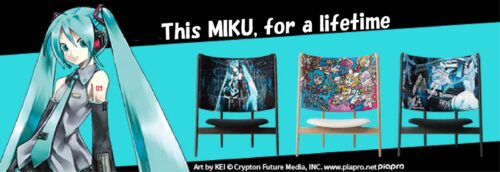The era of violent acceleration
Nissan GT-R (R32) and the Mercedes-Benz 500E. These two “monsters” were born at the dawn of the 90s, an era that feels like a fever dream compared to today’s sanitized, ecological market.
I was a teenager then, and my friend’s father owned both. I will never forget the first time I sat in them. The GT-R—souped up to a terrifying 700 HP—delivered a start-dash so violent it felt like being kicked by a god.
Back then, midnight streets felt like scenes from American Graffiti. Drag races were common, and the only real rival for a GT-R was another GT-R. Everyone gathered to witness the clash of the Godzillas. Of course, this isn’t a story for a polite classroom, and I’m not condoning illegal racing—but the raw, unbridled energy of that era was undeniable.
Looking back, it’s easy to dismiss this as “old-timer nostalgia.” But the truth is, we may never see such legends again. Back then, R&D budgets were fat, and legal restrictions were lean. Yet, my dissatisfaction with modern cars isn’t just about the specs; it’s about the soul.
The “Spindle” trap: Branding vs. identity
Today, brands like Lexus and Mazda are celebrated as marketing triumphs. They have achieved global success by unifying their designs—think of the “Spindle Grille” that dominates every Lexus.
The result is undeniably “successful,” but it has a side effect: our streets are becoming a monotonous parade of “safe and moderate” choices. As data analysis becomes more precise, it leads us to the most boring common denominator. We are perfecting the art of not offending anyone, but in doing so, we are failing to thrill anyone.
The chairman’s defiance: Pathos over marketing
The R32 GT-R wasn’t born from a focus group; it was born to crush its rivals. The 500E was the physical manifestation of Mercedes’ old slogan: “The best or nothing.” Rationally speaking, from a modern marketing perspective, these cars were “errors” in the spreadsheet—expensive and niche.
But they had pathos.
Years ago, I bombarded our past chairman with questions about the “marketing strategy” for a new furniture series. He looked at me and said: “There isn’t one this time. I gave the green light because it was technically difficult. As management, we have to respect the emotional aspect of the production team. If we don’t give them challenges that ignite their spirit, their morale will die.”

The beautiful irrationality of being human
Some of our products might end up as commercial failures. But if we stop pursuing the “technically challenging” or the “emotionally stirring,” we stop being creators and start being accountants.
Whether it’s a 700 HP monster car or a meticulously crafted chair, the world needs things that were born because someone said, “I want to see if we can do this,” rather than, “I think this will sell.”
This is because the act of living is inherently messy. Humans are walking contradictions—unhealthy, unproductive, and prone to making irrational decisions not by mistake, but by choice. We don’t just want what is “correct”; we want what makes our blood pump faster. To ignore that irrational spark is to ignore the very essence of being alive.
In a world of “safe” data-driven choices, true character comes from the courage to be irrational. Why not choose a design that speaks to your heart’s passion rather than its logic?

Photo Credit: https://hypebeast.com/2020/6/nissan-skyline-gtr-history-car-drivers-ed-guide-information

Shungo Ijima
Global Connector | Reformed Bureaucrat | Professional Over-Thinker
After years of navigating the rigid hallways of Japan’s Ministry of Finance and surviving an MBA, he made a life-changing realization: spreadsheets are soulless, and wood has much better stories to tell.
Currently an Executive at CondeHouse, he travels the world decoding the “hidden DNA” of Japanese culture—though, in his travels, he’s becoming increasingly more skilled at decoding how to find the cheapest hotels than actual cultural mysteries.
He has a peculiar talent for finding deep philosophical meaning in things most people ignore as meaningless (and to be fair, they are often actually meaningless). He doesn’t just sell furniture; he’s on a mission to explain Japan to the world, one intellectually over-analyzed observation at a time. He writes for the curious, the skeptical, and anyone who suspects that a chair might actually be a manifesto in disguise.
Follow his journey as he bridges the gap between high-finance logic and the chaotic art of living!

